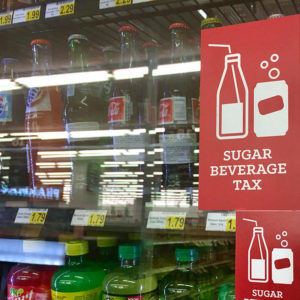Taxes on sugar-sweetened sodas, heralded as a solution to obesity and poor health, are not the silver bullets they’re cracked up to be. Proponents argue that such taxes will reduce the consumption of soda, which is valid only in blackboard theory. However, the reality is far less sweet.
Evidence suggests that the effect of soda taxes is modest at best. Even when people don’t buy their soda somewhere else (as a new study says they do), they often substitute other sugary foods. Such behavior negates many potential health benefits and points to a fundamental flaw in the soda tax approach: it narrowly targets one component of a more serious dietary problem. As food economist Jayson Lusk wrote in a 2017 article, soda and fat taxes “are unlikely to substantively affect obesity prevalence.”
Moreover, the allocation of soda tax revenues raises questions about the policy’s true intentions. In Philadelphia, for example, nearly 50 cents of every dollar raised by the beverage tax ended up in the city’s general fund rather than being earmarked for programs to combat obesity, as its proponents had promised. The diversion of money underscores a troubling trend. Soda taxes, while sold as a health measure, often serve as little more than a ploy to bolster municipal budgets.
The experience in Philadelphia is not unique but indicative of a broader pattern wherein the fiscal appetites of local governments overshadow the noble objectives of promoting health and reducing obesity. The misalignment of priorities raises questions about the efficacy and ethics of soda taxes as a health strategy.
Furthermore, implementing a national soda tax to stop cross-border shopping threatens to erode the principle of inter-jurisdictional tax competition. Such competition is a cornerstone of our federal system, allowing states and municipalities to tailor tax policies to their local economic conditions and fiscal priorities. As in ordinary markets, competition encourages efficiency and innovation in tax policies, as jurisdictions must balance the need for revenue with the desire to attract and retain taxpaying businesses and residents.
Proposals for a one-size-fits-all national soda tax would homogenize tax policies nationwide. A national soda tax overrides local governments’ fiscal policy decisions, undermining the diversity of approaches essential for policy experimentation and economic vitality. By flattening the tax-competition landscape, a national soda tax would not only miss the mark on improving health but also jeopardize the dynamic interplay of local governance that fuels our nation’s economic and social prosperity.
Like all selective consumption taxes, a national soda tax would restrict consumers’ choices and reduce their welfare. The U.S. experience with Prohibition, Denmark’s brief experiment with a fat tax, and New York City’s highest-in-the-nation excise tax on cigarettes also show that it would encourage the smuggling of untaxed soda from Canada, Mexico and other countries.
Clamping down on the inevitable increase in black-market activity implies more interactions between law enforcement and ordinary people. Those encounters can be violent — Eric Garner was killed by police in 2014 for selling untaxed cigarettes.
As we seek solutions to the obesity epidemic, it’s crucial to look beyond the simplistic and largely ineffective measure of taxing sugary drinks. Comprehensive dietary education, promoting physical activity, and improving access to healthy foods all represent strategies that address the root causes of obesity without resorting to regressive taxation that disproportionately harms low-income families and fails to deliver promised health benefits. Further public action may be unwarranted given the turn against soda by consumers — bottled water has been outpacing soda sales since 2016.
Soda taxes are bitter pills that fail to cure the disease they purport to fight. It’s time to rethink our approach to health and nutrition policy, focusing on measures that genuinely promote well-being without unduly burdening the public or misallocating scarce resources.


